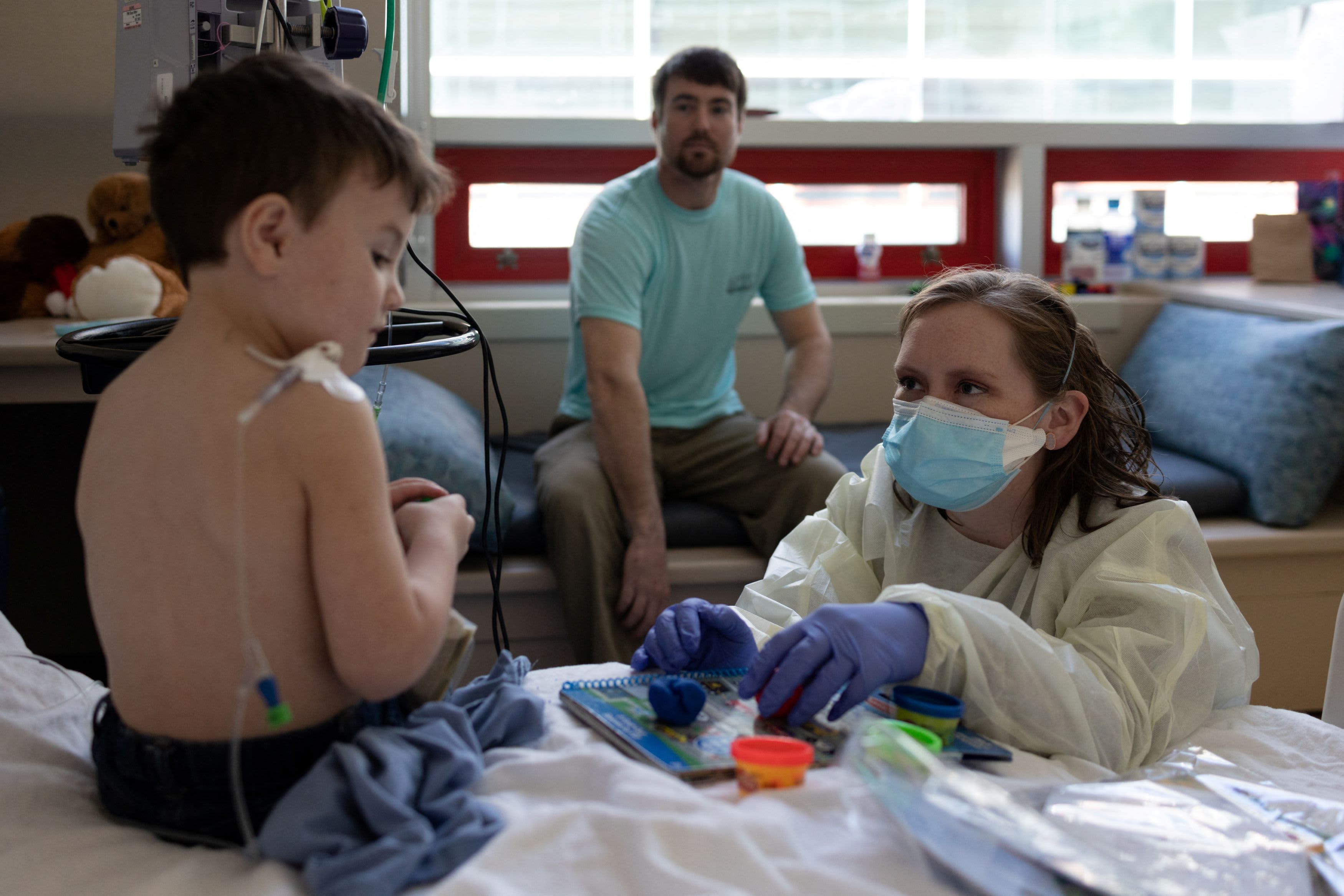Pfizer and BioNTech on Friday said they were delaying their request for the Food and Drug Administration to authorize their Covid-19 vaccine for children under 5 until early April, waiting on more data on the effectiveness of a third dose.
“Given that the study is advancing at a rapid pace, the companies will wait for the three-dose data as Pfizer and BioNTech continue to believe it may provide a higher level of protection in this age group,” Pfizer said in a statement. Pfizer said it needed more data “because rates of infection and illness remain high in children of this age” due to the omicron variant.
The FDA said it’s postponing a meeting Tuesday that was scheduled to look at the kids’ data.
The delay comes as a disappointment to parents who are anxiously awaiting the chance to vaccinate their children against Covid. Children under 5-years-old are the last age group left in the U.S. that isn’t eligible for vaccination.
Dr. Peter Marks, head of the FDA division responsible for vaccine safety, said data had rapidly come from Pfizer and BioNTech indicating that it was best to wait for data on a third dose. He said the sudden decision to delay authorization should reassure parents that the FDA is doing due diligence to make sure the vaccine is safe and effective for kids.
“Rather than having any issue of of causing anyone to question the process, I hope this reassures people that the process has a standard, that the process is one that we follow, and we follow the science in making sure that anything that we authorize has the safety and efficacy that people have come to expect from our regulatory review of medical products,” Marks told reporters during a press call Friday.
Marks said parents will have to rely on mitigation measures to protect their children as they wait for the vaccine’s authorization in the coming months. Those measures include masking and making sure everyone in the family who is eligible gets vaccinated.
U.S. health regulators have faced growing public pressure to authorize the shots as hospitalizations of children with Covid have increased during the unprecedented wave of infection caused by omicron. The FDA had originally asked Pfizer and BioNTech to submit an authorization request for the first two doses of the vaccine, while they finish collecting data on the efficacy of the third dose.
Pfizer and BioNTech, at the FDA’s request, submitted an application last week for authorization of the first two-doses, citing an “urgent public health need” for younger children during the omicron wave. However, Pfizer CEO Albert Bourla said at the time that kids under 5 would ultimately need a third dose to have the highest level of protection against omicron and future variants.
Pfizer amended its clinical trial for younger kids in December to study the third shot after the first two doses did not produce an adequate immune response in children 2- to 4-years-old. Younger kids will receive a smaller, three microgram dose compared with the 30 microgram shots that are approved for adults.
White House chief medical advisor Dr. Anthony Fauci said last month that he hoped the FDA would expand eligibility for the vaccine to younger kids in February.
The Centers for Disease Control and Prevention had already started laying the groundwork to distribute the shots this month, telling state and local health officials earlier this week they could receive their first shipments by Feb. 21. However, the CDC said shipment would start only when the FDA authorizes the vaccine, and administration of the shots could not begin until the CDC gave its endorsement.
The CDC plans to roll out 10 million doses in three phases as soon as the FDA authorizes the lower-dose, 3 -microgram Pfizer and BioNTech shot for children 6 months to 4 years old, according to a new planning document quietly issued Sunday. State and local health officials could start preordering the first doses Monday.
